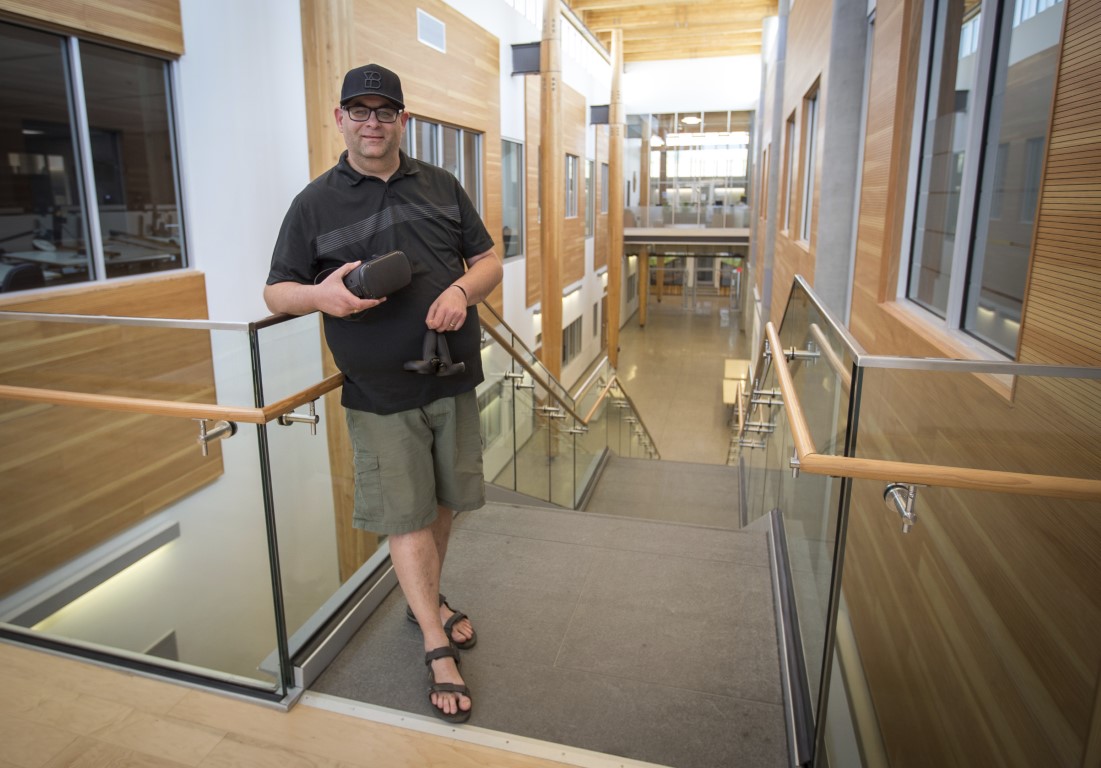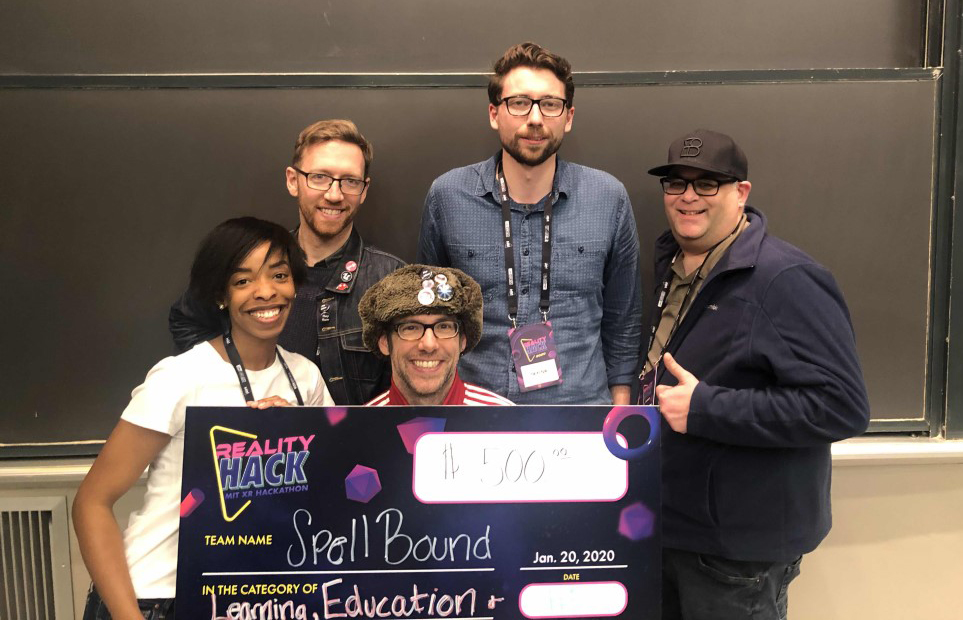 One of Lethbridge College’s own has returned from a prestigious competition in Boston with impressive accolades. Mike McCready, the college’s President’s Applied Research Chair in Virtual and Augmented Reality, was one of just 350 people chosen from around the world to take part in the annual Reality Hack: MIT XR Hackathon, hosted by the Massachusetts Institute of Technology (MIT). His team earned first place honours in two categories and placed in the top 10 overall.
One of Lethbridge College’s own has returned from a prestigious competition in Boston with impressive accolades. Mike McCready, the college’s President’s Applied Research Chair in Virtual and Augmented Reality, was one of just 350 people chosen from around the world to take part in the annual Reality Hack: MIT XR Hackathon, hosted by the Massachusetts Institute of Technology (MIT). His team earned first place honours in two categories and placed in the top 10 overall.
Attendees can arrive to the hackathon with ideas, but no other work completed. They then form teams of two to five people with complete strangers and have three days to create an original extended reality (XR) project. Over three days, McCready’s five-person team developed an app for children with dyslexia that helps to develop their letter formation and word recognition skills. It was awarded first place in both the Education and Learning and the Health and Wellness categories.
“I really wanted to work on a project that focused on dyslexia,” says McCready. “I looked at what virtual reality technology offered and I saw that it had some really strong capabilities to work on gross motor skills and speech recognition, and we were able to use those attributes to develop a solid project.”

Participants came from 49 countries around the world. McCready’s team included Taylor Gilbert from Austin, Texas, April Speight from Hollywood, Calif., Logan Smith from Portland, Ore. and Kai Curtis from Seattle, Wash. The team worked for 15 to 17 hours per day to plan, create and test the app, which they named Spell Bound.
Using a wizard theme, the first part of the app allows the user to operate VR hand controls to wave a wand that writes letters in the air, which helps to develop gross motor skills. The next part uses speech recognition technology as the user works to sound out the words they’ve just written. A correct pronunciation results in the casting of a spell. The game also includes a data-analysis tool that allows a teacher or facilitator to monitor the progress of the user.
“A lot of times children with dyslexia don't have a lot of confidence to read out loud in public because they're worried, ashamed or afraid,” says McCready. “When you're in virtual reality, you’re transported to another world – in this case, with our game, to a magical castle. That allows their confidence to possibly be a little bit higher because they feel like they're just there by themselves, reading out the word out loud.”
 Out of 80 teams, McCready’s team placed in the top 10 overall, and in the top five among VR-based projects. After the event, the team was approached by multiple companies encouraging them to further develop the app, meaning this project could reach full development in the future.
Out of 80 teams, McCready’s team placed in the top 10 overall, and in the top five among VR-based projects. After the event, the team was approached by multiple companies encouraging them to further develop the app, meaning this project could reach full development in the future.
“It’s a cliché, but it really was a life-changing experience,” says McCready. “For me, it validated that what we're doing here at Lethbridge College is important. It also validated that I'm able to contribute to this type of work. But most importantly, it demonstrated to me that there are a lot of people around the world who have a passion and a drive for this, and it made me want to be able to help my students find that passion and drive.”
McCready was named the college’s first President’s Applied Research Chair in Virtual and Augmented Reality in August to help further the college’s work in the VR/AR field. He was instrumental in developing the college’s Virtual and Augmented Reality certificate program – one of the first of its kind in Canada – that launched in September and he is an instructor in the program as well as a graduate of the college. He also serves as the President of the Alberta Chapter of the Virtual and Augmented Reality Association.
LISTEN: Mike McCready discusses his experience at the Reality Hack: MIT XR Hackathon.